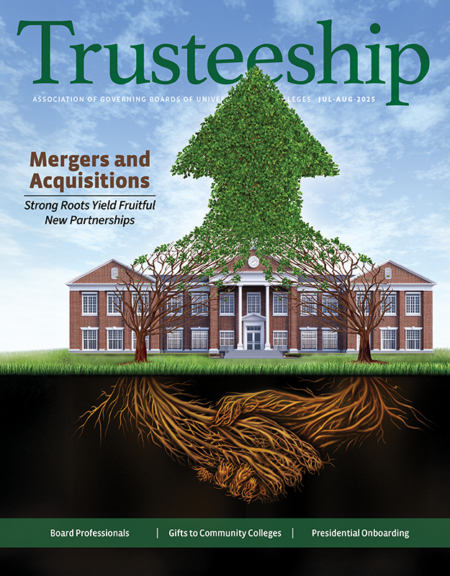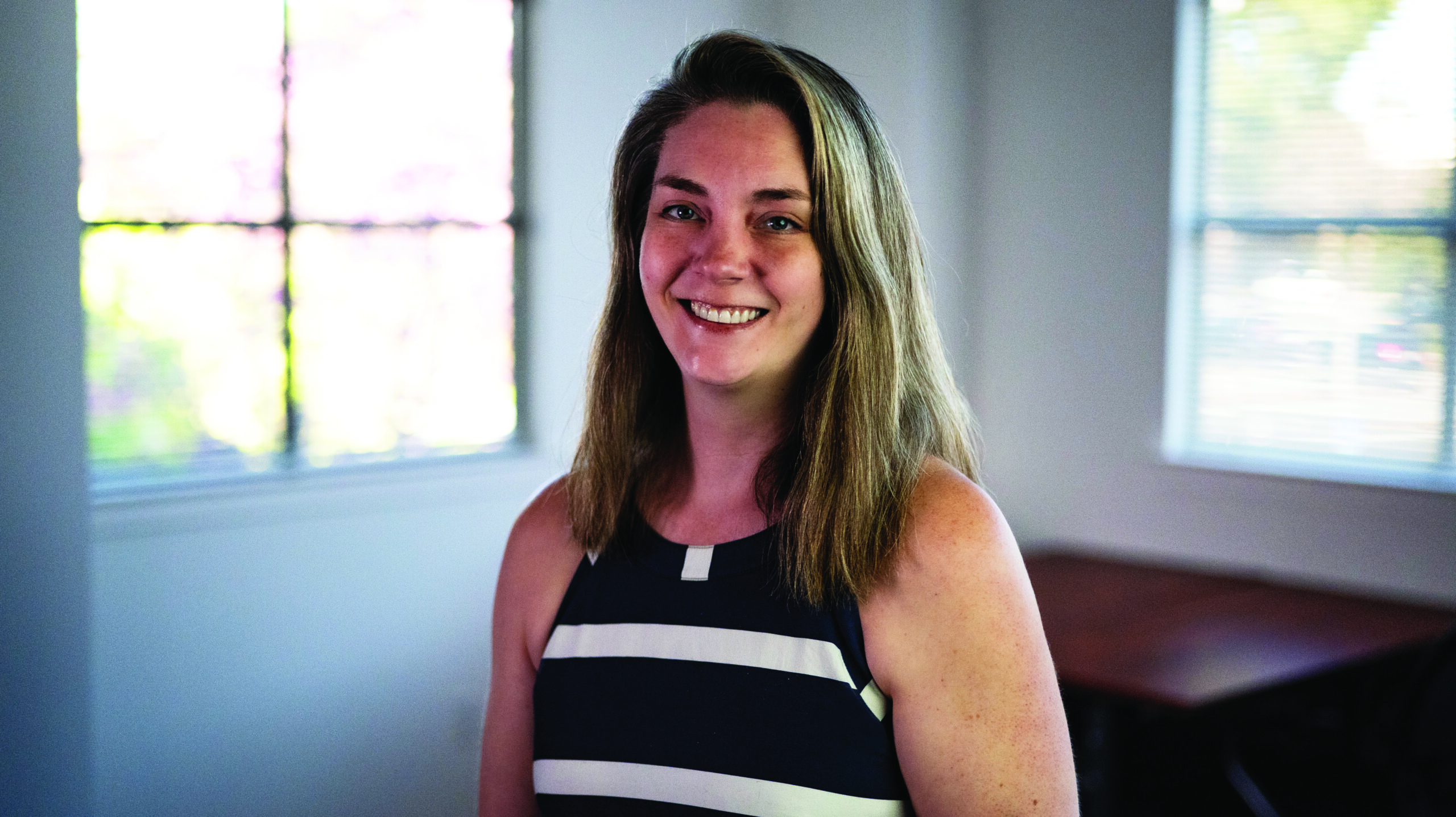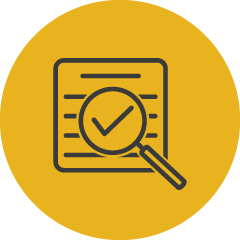
Melanie Morrison, MBA, is senior director of board and presidential operations at Palo Alto University and is a graduate of the institution. She serves as its board professional and a key member of the president’s cabinet and has led the transformation of the university’s board operations by modernizing systems, strengthening trustee engagement, and supporting the board’s shift toward more strategic governance since 2017. Morrison also plays a lead role in coordinating presidential initiatives and institutional planning. She received the 2025 AGB Distinguished Board Professional Award.
Why did you decide to become a board professional? What was your career path?
Throughout my career, I have been open to new opportunities and driven by a deep commitment to make systemic and procedural improvements that would allow our university to function more effectively and efficiently. The opportunity to serve as the board professional is a prime example. I began my time at Palo Alto University in academic affairs, supporting faculty and administrative functions, which gave me a strong foundation in academic operations. After moving into the president’s office, I was unexpectedly asked to support the board of trustees and quickly recognized an opportunity to modernize the systems and make a lasting impact.
After attending the AGB Board Professional Conference, talking with others, and learning more about the profession, I found my role shifting from one of primarily logistical execution to one of strategic partnership. Over the last eight years, the president, board leadership, and I have steadily worked to make each round of board meetings more efficient and informative than the previous year, improving functionality and engagement. I have developed systems and processes that positioned the board to operate with greater clarity, accessibility, and strategic focus. The ability to quietly shape meaningful change behind the scenes continues to inspire me in this work.
What has been your greatest success as a board professional?
My greatest success has been helping our board evolve from a paper-based, institutionally siloed model to a strategic, technology-enabled governance body. When I began, we had 40 years of paper files with limited records of trustee service, committee assignments, and leadership roles. The board had only recently implemented term limits; reconstructing our governance history became a foundational project.
I led the effort to digitize historical records and implement an OnBoard portal to centralize board materials. That work expanded into trustee dashboards tied to our strategic plan, a fully hybrid meeting model, and a flipped-classroom approach to trustee orientation. We now actively track trustee talents, interests, and professional expertise to better align them with university priorities and strategic initiatives, which has brought deeper meaning and purpose to the board experience. Today, trustees are more informed, better prepared, and deeply engaged in oversight. It has been a transformation not only of systems but also of how our board functions.
What is your advice for board professionals who want to advance their careers?
Start by learning your institution inside and out: its culture, goals, and strategic challenges. Use this knowledge to build materials and pose questions that support the board in having meaningful, high-impact conversations about university strategy and institutional improvement. A great board professional is a bridge builder, connecting leadership and trustees, strategy and operations, and present realities with long-term goals. They also play a critical role in translating the board’s high-level vision into grounded, actionable insights that resonate with the day-to-day realities of university life.
Your role will evolve as the board develops and deepens its strategic engagement. You have a real opportunity to impact university direction by framing current issues and opportunities for the board in ways that lead to thoughtful, mission-aligned initiatives. When a board is well-supported, its decisions cascade across the university, reinforcing priorities, supporting leadership, and driving change.
The role requires a mix of discretion, judgment, systems thinking, and diplomacy. When it is done well, people may not always see it, but they absolutely feel the difference in how the institution governs.
RELATED RESOURCES
Listen to this article on the AGB Soundboard App




